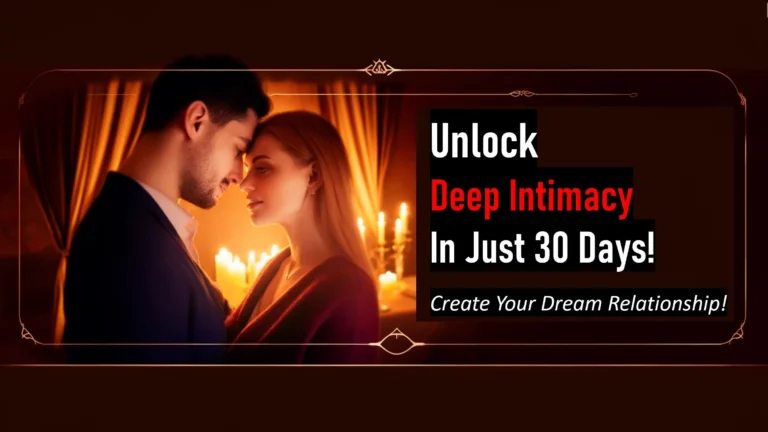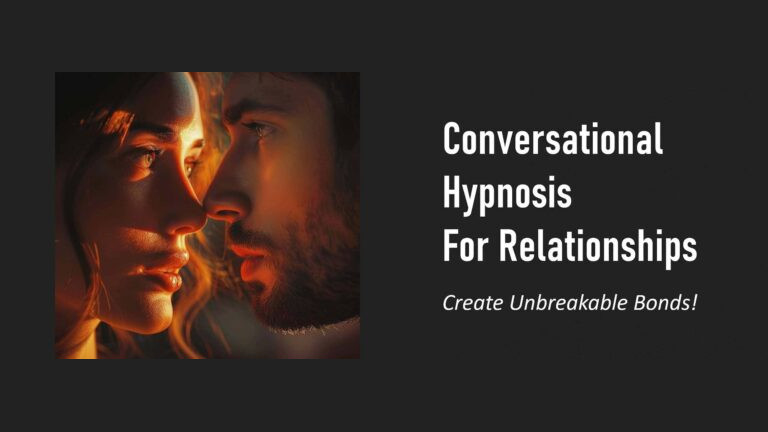In my work with high-performing professionals, entrepreneurs, and individuals navigating burnout or emotional fatigue, a common question often arises:
“Should I choose holistic coaching or a more traditional, goal-focused coaching style?”
The truth is — there’s no universal answer.
Like therapy or medical treatment, coaching works best when it matches where you are in your life and what you’re truly seeking. Sometimes, what we think we need isn’t always what creates real change.
Having practiced both psychiatry and executive coaching, I’ve witnessed how each coaching style brings something valuable and how the right fit depends on timing, context, and individual needs.
In this article, I’ll walk you through the key differences between Western and holistic coaching, based on real experiences not to declare one better than the other, but to help you gain clarity on what may resonate with you.
Understanding Western (Traditional) Coaching

Western coaching also known as traditional or performance-based coaching is a widely used approach, especially in professional, executive, and corporate settings. This style of coaching is typically structured, goal-driven, and rooted in measurable outcomes. Over the years, I’ve had many clients come to me with clearly defined challenges or targets, and this method has proven to be highly effective in those situations.
Clients who lean toward this style usually come in with a specific objective in mind. They might want to:
- Set and achieve measurable goals
- Increase productivity or build confidence
- Strengthen leadership and communication skills
- Improve decision-making or time management
- Accelerate their career or business growth
In these sessions, I often use proven frameworks such as SMART goals (Specific, Measurable, Achievable, Relevant, Time-bound) and GROW (Goal, Reality, Options, Will). These models provide clarity and structure, which many high-performing individuals find motivating and reassuring.
Cognitive-behavioral coaching techniques also come into play, helping clients recognize and shift limiting thoughts, reframe challenges, and stay accountable to their commitments.
✅ When Western Coaching Tends to Work Well:
- You want to make tangible progress or hit specific milestones
- You feel energized by structure, checklists, and deadlines
- You’re focused on external change: promotions, projects, decisions, habits, or business outcomes
- You value logic, data, and actionable steps
This approach is particularly effective when the client is already functioning well but wants to optimize performance or break through to the next level. It’s about forward motion — tracking progress, maintaining momentum, and staying results-oriented.
However, there’s something I’ve observed repeatedly in my practice — and it’s worth pausing to reflect on.
Even when people hit their goals and check all the boxes, they sometimes say:
“I should feel accomplished… but why do I still feel unsettled?”
“Everything looks great on paper, but something feels off.”
“I got the promotion… but I’m not sure I even wanted it.”
These are not uncommon reactions. And they point to something deeper: the inner world.
Western coaching focuses strongly on the doing — the strategies, the behaviors, the outcomes. But what about the being? What about the emotional undercurrents, identity shifts, personal values, or even spiritual questions that often emerge, especially during major life or career transitions?
This is where a purely performance-based approach can sometimes fall short and where I often find myself blending in deeper, more reflective practices from holistic models.
What Holistic Coaching Looks Like in Practice
Holistic coaching takes a very different starting point than traditional models. In fact, many of the clients I meet in these sessions aren’t necessarily asking, “How can I improve performance?” Instead, they’re often asking questions like:
- “Why do I feel off even though everything seems fine on the outside?”
- “Where did I lose the sense of meaning I used to have?”
- “What’s the real reason I keep repeating this same cycle?”
These questions are powerful because they don’t point to surface-level change. They point to a deeper emotional or existential misalignment and that’s where holistic coaching becomes particularly effective.
In holistic coaching, we don’t just view a person through the lens of productivity or achievement. We consider the entire ecosystem of a person’s life: emotions, energy, past experiences, core values, physical well-being, and even spiritual questions if the client is open to that. It’s a fuller, more compassionate picture of human growth.
Some clients I’ve worked with in this approach explore:
- Patterns in relationships that keep resurfacing
- The tension between who they are and who they think they “should” be
- Practices like mindfulness, breathwork, or journaling to connect with themselves
- Healing emotional wounds that are quietly influencing present-day behavior
- Rediscovering purpose or meaning in midlife, career changes, or after burnout
Holistic coaching sessions may include moments of silence, reflection, even tears — and that’s not a sign of weakness. It’s often a sign that something real is surfacing, something we’ve avoided but that’s been waiting to be acknowledged.
🌿 When Holistic Coaching Is Most Supportive:

From my experience, holistic coaching resonates most deeply with individuals who are navigating:
- Transitions — changing careers, ending relationships, becoming parents, or entering a new life phase
- Burnout or emotional fatigue — when the old strategies no longer work, and rest feels more urgent than hustle
- Inner questioning — wondering who you truly are beneath roles and responsibilities
- Stuckness despite trying everything — when you’ve read the books, taken action, yet still feel something’s unresolved
Unlike goal-based sessions that drive action right away, holistic coaching invites pause before progress. It creates space to feel, reflect, and reconnect with your deeper self. And in many cases, it’s this internal shift that eventually leads to the external results — only now, they feel authentic, not forced.
Western vs. Holistic Coaching: What Are the Key Differences?
Here’s a simplified view I often reflect on when helping clients explore what they need:
| Approach | What It Offers | What It May Miss |
| Western Coaching | Structure, strategy, measurable outcomes | Deeper emotional context or inner alignment |
| Holistic Coaching | Emotional depth, self-awareness, intuitive clarity | Clear direction, structure, or momentum |
It’s not about which method is right — it’s about recognizing that each serves a different purpose, depending on your current season of life or leadership.
Real Coaching Examples from Practice
Over the years, clients have brought me deeply personal and diverse challenges — not all of them could be solved with a framework or formula. What I’ve found is that each coaching journey is unique, and effective coaching lies in listening carefully, evaluating thoughtfully, and adapting the approach accordingly.
Let me share a few real-world scenarios (details changed to protect privacy) that show how different needs call for different styles of coaching — and why it’s never a one-size-fits-all process.
Case 1: The High Achiever Who Felt Numb Inside

A senior executive once came to me with a surprising confession: “I’ve achieved everything I thought I wanted… but I don’t feel anything.”
He had a title, a great paycheck, recognition — yet there was a profound emotional disconnect. “I should be happy,” he repeated, “but I’m not.”
At that point, a traditional coaching model would have offered strategies to increase motivation or performance — but it was clear that wasn’t what he needed. Instead, we slowed things down. I held space for him to explore the deeper, more uncomfortable questions that don’t have quick answers:
- Why don’t I feel joy in what I’ve worked so hard for?
- What really matters to me now?
- Have I been chasing goals that no longer align with who I’ve become?
This wasn’t a session filled with tools and tasks — it was a reflective, holistic process. Through presence, curiosity, and honest inquiry, he began to reconnect with his values and sense of purpose.
Eventually, the changes he made weren’t just career-based — they impacted how he lived, led, and related to others. What started as burnout transformed into meaning.
Case 2: The Leader Seeking Focus and Strategy

Another client — a team leader in a high-growth startup — came in with a very different kind of challenge. Her calendar was chaotic, her decision-making felt shaky, and she constantly questioned herself.
She wasn’t looking for deep introspection — at least not yet. What she craved was clarity, systems, and a sense of control.
So we built that together:
- A structured coaching plan
- Decision-making frameworks tailored to her leadership style
- Accountability check-ins to stay on course
This was a situation where traditional coaching truly shined. We focused on actionable goals, leadership presence, and performance under pressure.
Her transformation wasn’t emotional — it was strategic. But no less significant. She started leading with confidence, managing her energy better, and finding a rhythm that supported her ambitions.
Case 3: The Individual in Emotional Transition
Then there are those who arrive at a more tender crossroad — after a breakup, during grief, or in the midst of identity loss or personal reinvention. One client simply said: “I don’t know who I am anymore.”
These are moments where pushing toward productivity would be counterproductive. Instead, the coaching space becomes a quiet sanctuary — one for healing, emotional awareness, and self-trust.
Together, we didn’t rush to define new goals. We allowed insights to emerge organically. Through conversation, mindfulness, and gentle reframing, they began to rediscover parts of themselves that had been long buried under expectations or survival.
Sometimes, the biggest transformation is not what you do — but what you finally understand about yourself.
These examples reflect something I’ve learned through experience:
Effective coaching doesn’t begin with tools — it begins with listening.
Only then can we discern what approach will truly support the person in front of us.
What I’ve Learned Over the Years
There is no universal template that applies to everyone.
Some people thrive with frameworks. Others need reflection before they can move forward. And many shift between both — depending on what life brings.
As a coach and psychiatrist, my role is not to impose a model — it’s to meet you where you are.
Sometimes that means creating structure. Other times, it’s about holding space. And often, it’s about simply listening — beyond words — to what’s really being asked for.
FAQs: Choosing the Right Coaching Approach
Is holistic coaching the same as therapy?
Not exactly. Therapy often focuses on healing past trauma or managing mental health conditions. Holistic coaching is future-focused — helping you align your inner world with external goals using tools like mindfulness, values work, and emotional awareness.
How is your coaching different from traditional life coaching?
With my background in psychiatry, I bring clinical understanding of behavior, emotion, and neurobiology — while working in a non-therapeutic, coaching capacity. This allows for a psychologically grounded, yet forward-focused coaching experience.
Can coaching help with burnout, anxiety, or emotional fatigue?
Yes. Many clients I support are high-functioning but emotionally depleted. Coaching can help you regulate emotions, reconnect with meaning, and reorient your energy in a healthy and sustainable way.
Final Thoughts: It’s Not About the Model — It’s About You
Coaching is often packaged into styles and systems — but ultimately, you are not a model. You are a human being, and the most effective coaching is the one that sees and honors that.
Some seasons require clarity. Some ask for courage. Some just need space.
Whether you feel stuck, overwhelmed, or simply unsure what’s next — the question isn’t, “Which coaching method is right?”
It’s, “What do you need right now?”
Let’s Talk
If you’re exploring questions about purpose, burnout, leadership, or change — and wondering whether coaching could help — let’s start with a simple conversation.
🗓️ Book a 1:1 discovery session where we explore your current challenges and goals with zero pressure.









0 Comments